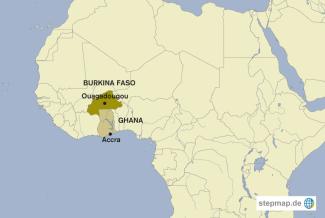Agriculture
The vegetable dispute

Trucks drive along the Ghanaian border are heading to Burkina Faso. In about ten minutes, five of these trucks pass: Ghanaian vegetable traders are going to import vegetables into the country.
This business bothers tomato growers in the Upper East Region of Ghana. “Every day, we watch the vehicles like this pass by on their way to Burkina,” says Akolgo James, a farmer, “but none stop at our farms.”
It is estimated that more than 2700 trucks bring in tomatoes from Burkina every week. “We will stop farming soon!” another angry farmer says. “Why do they bypass us and make farmers in Burkina richer than us?”
Gladys Nso is one of the customers who prefer vegetables from the neighbouring country. She says that Ghanaian farmers use too much agro-chemicals, so “Burkina vegetables are better and taste nicer”.
Farmer Richmond Atura denies this: “We do exactly the same as they do. They add fertilizer – and we add fertilizer; they spray the crops and we spray the crops. But now the market women say our products are no good… I don’t know why."
About 45 % of adult Ghanaians work in agriculture, contributing not quite a quarter to GNP, according to the World Bank. Joseph Walil, the officer in charge of crops at the Ministry of Agriculture in the Upper East region, admits that things have not gone well: “The blame is on us.”
A factory located in Pwalugu in the Upper East region, supposed to process tomatoes and meat, has been non-operational for almost a decade. Walil says the government has plans to put it back to use. Food processing would increase the demand for tomatoes.
Vegetable growers like Azure Awini hope that the government will turn talks into action, because “we took loans to invest in our farms. The banks want their money back, but we need to pay our children’s school fees. Where is this going to come from?“ she asks.
Public-private initiatives like the Dutch-Ghanaian business platform GhanaVeg want to improve matters. It brings together key service providers, producers, processors, traders and wholesale as well as retail traders. The goal is to raise productivity and foster inclusive growth. “Ghana has great potential,” says Joep van den Broek of GhanaVeg.
Maxwell Suuk is a journalist and lives in northern Ghana.
suuk.max@gmail.com
Link
GhanaVeg Business Platform:
http://ghanaveg.org/








